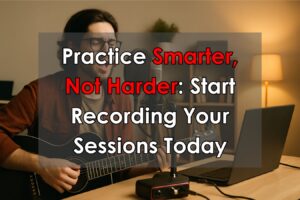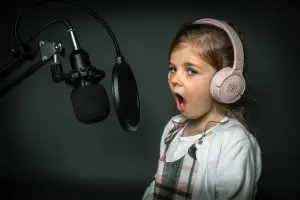Our ears are the most important tool we have as musicians. It’s because of our ears that we were able to enjoy music. It’s because of our ears we know if what we’re playing is right. Your ears are finely tuned and calibrated parts of our body that allow us keenly tune in to the various aspects of a piece of music. Unfortunately, they are also a degrading tool that will diminish over time. Some of this is unavoidable and will happen regardless of what we do. However, musicians are notorious for having bad hearing as they get older. Probably because we listen to very loud music a lot.
But how loud is too loud and how do we know how loud is too loud? How does it work? We’re going to delve a little bit into the science of how it all comes together and figure out how we know when we’re ok and when we need to take a break.

How to Measure Loudness
Loudness is measured in a unit called Decibels (dB). The softer a sound is, the lower the decibel level. The louder a sound is, the higher the decibel level.
Chart provided by MD Hearing.
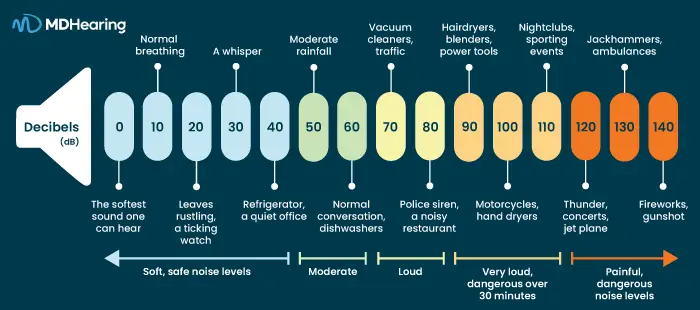
Nowadays, people have the ability to measure decibels using an app on their smart phone. Often these apps are free or very cheap. It can be interesting, going to various locations and finding out how loud certain areas are.
How Our Ears Work
Our ears act like little radar dishes by picking up vibrations in the airwaves. These vibrations make their way into our ear hole and stimulate tiny little hairs inside of a tube called the cochlea. Each of these hairs is a specific length and thickness to pick up a specific frequency. These hairs are attached to a cell receptor. When the right frequency comes into our ear and stimulates the hair, it activates the cell receptor and tells our brain that specific frequency is coming in. Their are around 15,000 of these little hairs inside each ear which gives us incredibly detailed levels of hearing.
The Power Of Loud
Our ears don’t exactly work proportionately with how power exchanges into loudness. Our ears perceive a doubling of volume as about ten decibels. But when measured scientifically, we see that a doubling of power into a sound source actually creates only about a 3dB difference in actual volume.
This 3dB difference directly impacts our hearing response and how long we can listen to loud volumes.
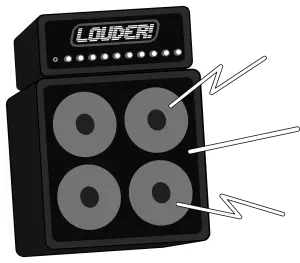
It's Not Just How Loud, It's How Long
At 80dB, we have the ability to listen to a sound source all day. But once we cross that threshold, the numbers start to go down quite dramatically.
- 83 Decibels – 16 Hours Per Day
- 86 Decibels – 8 Hours Per Day
- 89 Decibels – 4 Hours Per Day
- 92 Decibels – 2 Hours Per Day
- 95 Decibels – 1 Hour Per Day
- 98 Decibels – 30 Minutes Per Day
- 101 Decibels – 15 Minutes Per Day
- 104 Decibels – 7.5 Minutes Per Day
- 107 Decibels – 3.75 Minutes Per Day
- 110 Decibels -1.875 Minutes Per Day
- 113 Decibels – Just Under 1 Minute Per Day
- 116 Decibels – 30 Seconds Per Day
- 119 Decibels – 15 Seconds Per Day
- 122 Decibels – 7.5 Seconds Per Day
As you can see from the chart above, every 3 decibels cuts the amount of time you have in half before you start taking hearing damage.
How Do You Know When You're Taking Hearing Damage?
The most obvious sign is when you have a ringing in your ears. The ringing in your ears are your cell receptors in your ears screaming in pain. They are telling you that they have been over stimulated and are taking damage. People who have done this excessively may experience frequent ringing in their ears also known as Tinnitus.
Some hearing damage is unavoidable. Sometimes it’s not the cells that take damage but the hairs that stimulate the cells. The thinner hairs that pick up higher frequencies will eventually become brittle and snap, effectively removing the radar dish for your cell receptors. It’s not uncommon for older people to experience a gradual decrease in high frequency response. My grandfather famously could not understand small children at all because their voices were too high for him to understand. Similarly, some department stores in malls tried putting a high frequency drone in their store to annoy kids and teenagers from entering the store while their older customers couldn’t hear the pitch and shopped like normal.
How Can You Protect Your Ears?
There are a number of creative ways to help save your hearing. Nowadays, they make special ear plugs just for musicians to help reduce the amount of noise entering your ear drum. You can get these in a standard form or in a custom molded for just for your ears. The standard ones can go for around $30-40 while the custom molded ones can be anywhere from $140-220. This might seem like quite an investment but if you’re frequenting live events, they are well worth preserving your greatest asset. Most of these ear plugs are meant to least 5 to 10 years so if you divide that cost over that period of time, it makes a lot more financial sense considering what you’re saving.
If you’re on stage and you want to take it to the next level, in ear monitors are also an option. In ear monitors help reduce the stage volume and also give you a much more detailed monitoring system. These rigs can be very expensive though and do require a significant investment, especially if you’re doing it for the whole band. However, they also open up greater possibilities down the road like playing to a click track, sequence tracks, automated lighting, and synchronized video production.
Westone Custom Molded Musicians Earplugs
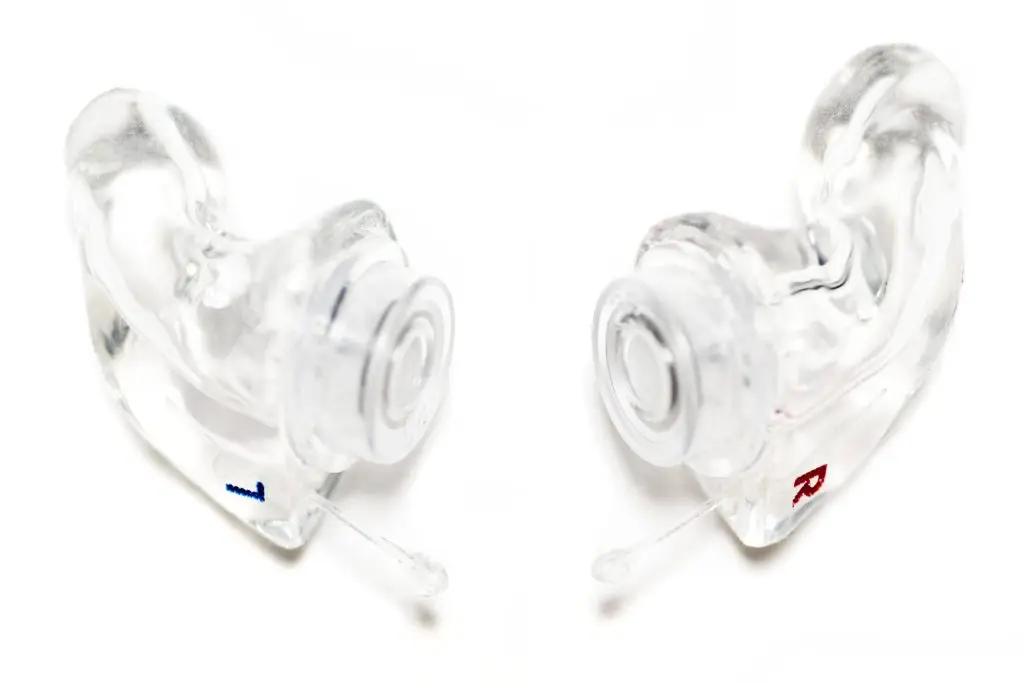
Other Posts
